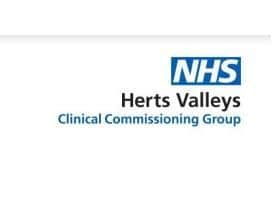Herts Valleys CCG among worst in England for treating patients
and live on Freeview channel 276
NHS Herts Valleys Clinical Commissioning Group is among the worst performing in England, according to analysis of NHS England data by the Medical Technology Group.
Analysis of NHS England data by the Medical Technology Group has revealed huge regional variation in the number of patients receiving NHS treatment in England, with Clinical Commissioning Groups (CCGs) in the North performing significantly better than those in the South.
Advertisement
Hide AdAdvertisement
Hide AdAccording to the findings, NHS Herts Valleys CCG - which covers Dacorum, Hertsmere, St Albans and Harpenden, and Watford and Three Rivers - treated just 3.35 patients per 1,000 population in June, only increasing its output by 0.31 patients per 1,000 population from May.


The best performing region was the Northeast which treated 5.37 patients per 1,000 population in June, compared to 3.38 in London and 4.14 in the East.
This data relates to hospital treatment and not to GP practices. More than 2.3 million GP appointments have taken place across Hertfordshire and West Essex between April and July 2021.
The Medical Technology Group (MTG) is a coalition of patient groups, research charities and medical device manufacturers working to make medical technologies available to everyone who needs them.
Advertisement
Hide AdAdvertisement
Hide AdMonthly Referral to Treatment (RTT) data for completed admitted pathways by Clinical Commissioning Groups in June 2021, published by NHS England on August 12, was compared with the same data from May and April 2021 (published on July 8, an June 10, respectively).
A comparison of the equivalent data from July 2019 provided a pre-Covid comparison.
Consultant-led Referral To Treatment (RTT) waiting times are released monthly, and monitor the length of time from referral through to elective treatment.
The data used was the total number of completed admitted pathways across all treatment functions within the relevant month. To understand the relative increase of productivity across CCGs, the number of patients treated per 1000 of the population was calculated.
Advertisement
Hide AdAdvertisement
Hide AdThe data presented does not differentiate between those who are receiving routine elective treatment (for example hip and knee surgery) and those whose clinical needs are most urgent and who are being seen more quickly - for example people with suspected cancer and those with acute conditions such as heart failure and strokes.
The data presented does not account for patients treated by community providers.
The national standard for starting cancer treatment is that 85 per cent of all patients who have been referred with suspected cancer should receive their first definitive treatment within 62 days. The ICS achieved this standard for its provider footprint.
Dr Rachel Joyce, Director of Clinical and Professional Services for the Hertfordshire and West Essex ICS said: “Our NHS staff are working incredibly hard to ensure that patients receive their treatment as soon as possible and, with every patient case reviewed by a clinician, we prioritise those with the most urgent and complex needs – including cancer diagnosis and treatment where more than 85 per cent of people are beginning treatment within eight weeks.
Advertisement
Hide AdAdvertisement
Hide Ad"We’ve put in place additional diagnostic tests, appointments and surgeries, with more access at evenings and weekends, and are working alongside independent providers to make sure everyone is seen as quickly as possible.
"We’re also utilising technology better, with telephone and online consultations where appropriate, using digital technology to monitor people’s health from home, and putting in systems that allow patients to schedule their own follow-up appointments if and when they need them.”
The data suggests that patients in the north of England are more likely to receive access to treatment than those in the South.
The figures reveal that the NHS in England is treating significantly fewer patients than before the Covid-19 pandemic.
Advertisement
Hide AdAdvertisement
Hide AdA comparison found that 242,293 people received treatment in July 2021, nearly 22,000 fewer (8 per cent) than the same period in 2019 (264,108).
The data show that the NHS still needs to make significant progress to address the waiting list of 5.45 million people in June 2021 and return to pre-pandemic levels.
Barbara Harpham, Chair of the Medical Technology Group, said, “The regional disparities that were present before the Covid pandemic – resulting from arbitrary decision-making from Commissioners - have only been exacerbated by the pandemic.
“All patients, no matter where they live, deserve the same access to diagnostic tests and interventions.
Advertisement
Hide AdAdvertisement
Hide Ad"Everyone needs to be treated fairly and equitably as the NHS battles to recover from the enormous impact of Covid.
“We urge NHS England to agree to a post-Covid patient charter that ensures rapid access to treatment and no arbitrary restrictions so patients are certain of the service they will receive.”
The MTG is proposing a five-point post-Covid NHS Standard: Patient Charter including:
> Rapid access to treatment and information on waiting times.
Advertisement
Hide AdAdvertisement
Hide Ad> No arbitrary restrictions, such as weight or pain thresholds.
> Effective appeals if a treatment is not given or a patient is not happy with their care.
> A choice of treatment and location, with existing rights upheld.
> A patient say on prioritisation decisions and on regional NHS Boards.